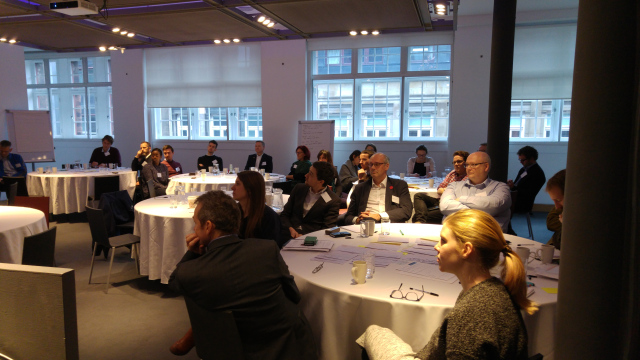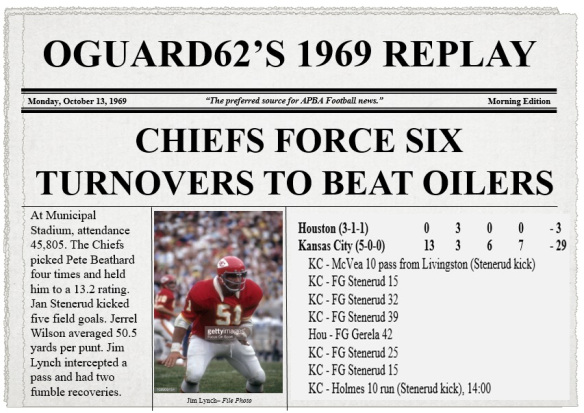Back in November, Climate Ready Clyde brought stakeholders together to help develop Glasgow City Region’s Climate Risk and Opportunity Assessment. We’ve just published the workshop report, and the main assessment will be published later this year, and will outline the impacts of climate change for Glasgow City Region.

Following our evidence review, we wanted to raise awareness of the risks and opportunities identified, gain a greater understanding from those with more in-depth knowledge, and start to prioritise them. To do so, we designed a bespoke approach, and I thought it might be good to dig into why and share our learning.
The need for a collaborative approach stems from climate change risks themselves. Each risk will differ in likelihood and impact. They could begin to be felt at different times, and will need action at different times to manage them. And a good number of risks needs organisations to work together to manage them. Therefore, shared understanding and ownership is crucial. Getting it right should result in widespread support for the final adaptation strategy and action plan.
The workshop itself was well received, and we had some great feedback about the day. But in designing and running the workshop, some points came out:
-
You must consciously manage the information you put in front of people. Two phases of the UK Climate Change Risk Assessment, as well as years of research and reports, mean there is a wealth of data out there about climate risks. The challenge used to be about finding meaningful information. Now the challenge is synthesising it into something meaningful and accessible. We used A5 cards for this, containing key information from the evidence review. Stakeholders were asked to prioritise the cards, identifying their top 5 risks or opportunities. Whilst not perfect, most people felt this was enough to make initial decisions.

-
Make the materials local enough. If you want organisations to own it, they need to see how climate change will affect their area of work. Most people who work in City Regions do so because they feel a connection to their place and want to improve it. Whilst impacts are more uncertain the more local you get, you need to balance that with the need to make people understand why they need to act. We used existing reports from organisations in the City Region, along with expert evidence to try and achieve that balance.
-
People will generally reach consensus on priority. The final assessment will rate the risks and opportunities based on their likelihood. However, for the workshop we considered political, social, economic, environmental, cultural factors along with dimensions of climate change risk. Whilst there was a possibility of significant disagreement, both groups seemed to come to a broad conensus.
-
Engaging widely helps buy in and understanding – Stakeholders weren’t just asked for their views on risks linked to their own sectors. Instead, we pro-actively asked participants to attend tables that were not related to their own area of interest. Doing so raised awareness of the systemic nature of climate impacts, as well as the need to place their own risks in context of the broader City Region. This led to some interesting conversations, with many people saying they’d learnt something new! It also helped test the clarity and understanding of the evidence, ensuring it is accessible to a wide range of audiences.
We’re now writing up the draft assessment, but I’m more convinced than ever that an inclusive approach is needed for longer term management of climate change risk. On reflecting on the above, I realise that this is a more exploratory version of that African proverb

But it’s occasionally worth reinforcing this message, as it’s probably the reason why so many ‘rapid assessments’ or ‘city resilience tool-kits’ fail to ‘stick’ and help places move forward. Fortunately this isn’t the case for Glasgow City Region, and we’re laying strong foundations for long term resilience to climate change.
Advertisements
Share this:
Like this:Like Loading...
 Following our evidence review, we wanted to raise awareness of the risks and opportunities identified, gain a greater understanding from those with more in-depth knowledge, and start to prioritise them. To do so, we designed a bespoke approach, and I thought it might be good to dig into why and share our learning.
The need for a collaborative approach stems from climate change risks themselves. Each risk will differ in likelihood and impact. They could begin to be felt at different times, and will need action at different times to manage them. And a good number of risks needs organisations to work together to manage them. Therefore, shared understanding and ownership is crucial. Getting it right should result in widespread support for the final adaptation strategy and action plan.
The workshop itself was well received, and we had some great feedback about the day. But in designing and running the workshop, some points came out:
Following our evidence review, we wanted to raise awareness of the risks and opportunities identified, gain a greater understanding from those with more in-depth knowledge, and start to prioritise them. To do so, we designed a bespoke approach, and I thought it might be good to dig into why and share our learning.
The need for a collaborative approach stems from climate change risks themselves. Each risk will differ in likelihood and impact. They could begin to be felt at different times, and will need action at different times to manage them. And a good number of risks needs organisations to work together to manage them. Therefore, shared understanding and ownership is crucial. Getting it right should result in widespread support for the final adaptation strategy and action plan.
The workshop itself was well received, and we had some great feedback about the day. But in designing and running the workshop, some points came out:

 But it’s occasionally worth reinforcing this message, as it’s probably the reason why so many ‘rapid assessments’ or ‘city resilience tool-kits’ fail to ‘stick’ and help places move forward. Fortunately this isn’t the case for Glasgow City Region, and we’re laying strong foundations for long term resilience to climate change.
Advertisements
Share this:
But it’s occasionally worth reinforcing this message, as it’s probably the reason why so many ‘rapid assessments’ or ‘city resilience tool-kits’ fail to ‘stick’ and help places move forward. Fortunately this isn’t the case for Glasgow City Region, and we’re laying strong foundations for long term resilience to climate change.
Advertisements
Share this:




